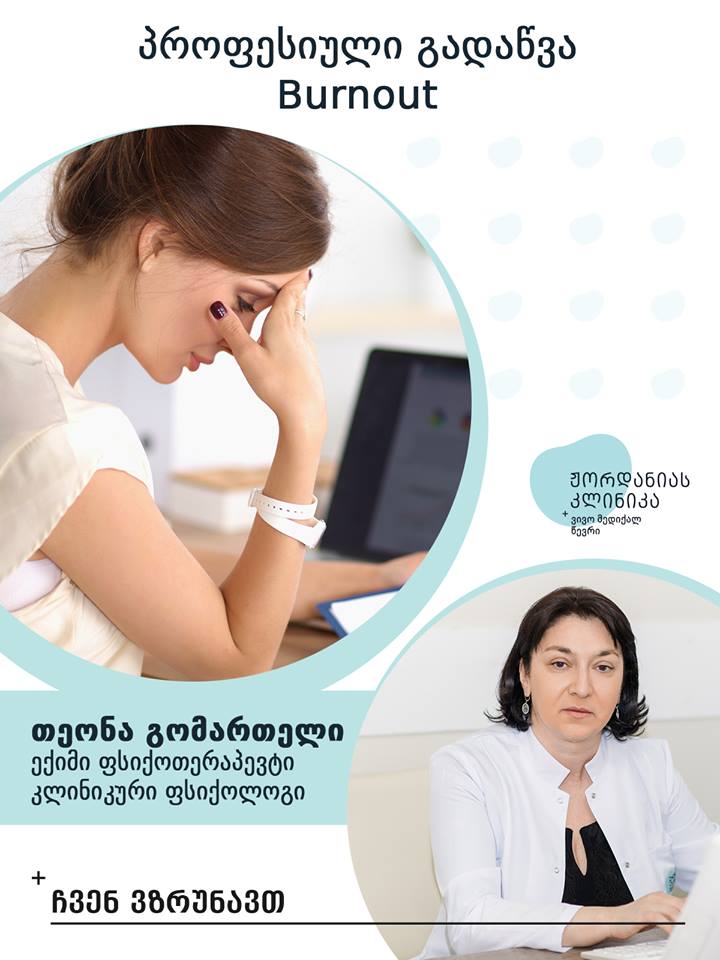Burnout and occupational stress
Rating:
Publication date: 29.06.2018
213

Have you ever thought about the risks you face when you take on too many responsibilities, multi-role and think that’s it, but you can’t…
You have no strength, you are exhausted, there is a feeling of increased helplessness, a cynical attitude. You think that you have nothing to give as a person.
This condition is a specific type of stress – “burnout”. The famous American psychologist Herbert Fredenberger introduced this term and was the first to describe the symptoms of burnout.
Burnout and occupational stress are interactions between personality and work that lead to physiological, emotional-behavioral and cognitive changes in the individual.
The cause of burnout can be the wrong work schedule of a person, insufficient time for communication and rest, excessive responsibility, lack of close and supportive relationships, etc. Ignoring the period of burnout or even thinking that this syndrome is not a threat and passes without a trace, often becomes source of severe consequences. In particular:
- Tired
- Insomnia
- anxiety and depression
- Heart disease
- high cholesterol
- Type 2 diabetes, especially in women
- Obesity
- Vulnerability to various diseases
- Burnout is characterized by emotional signs:
- Feeling empty
- Lack of motivation
- Hopeless talk of positive change
- Feeling helpless, frustrated by failure
- “It seems that he is alone in the world” – a similar feeling
- Negative outlook and reduced satisfaction
During “burnout”, a person’s behavior changes, he can avoid responsibility, isolation, isolation, procrastination, drug and alcohol use, shifting his frustration to others, etc. are common. Burnout is paid a lot of attention in the world, among which the so-called strategies are popular self-help.
Self-help strategies to reduce stress can be helpful during burnout:
- Social contact is the antidote to stress. Meeting with an interesting and intelligent interlocutor is the best way to relax.
- Set aside details that annoy and upset you. Have a good time:
- If you work with negative personalities, reduce the time of communication with them, look for positive connections in social relationships:
- Work smart, short:
- Learn to say “no” during busy periods. Change your schedule actions:
- Developing personal strategies, proper nutrition, and getting enough sleep are important steps to reduce burnout.
If you find it difficult to cope with burnout syndrome within two months, it is advisable to contact a specialist.
To book a consultation, please contact us:
Tel: 2 24 32 32
Miss: I.Abashidze 65



